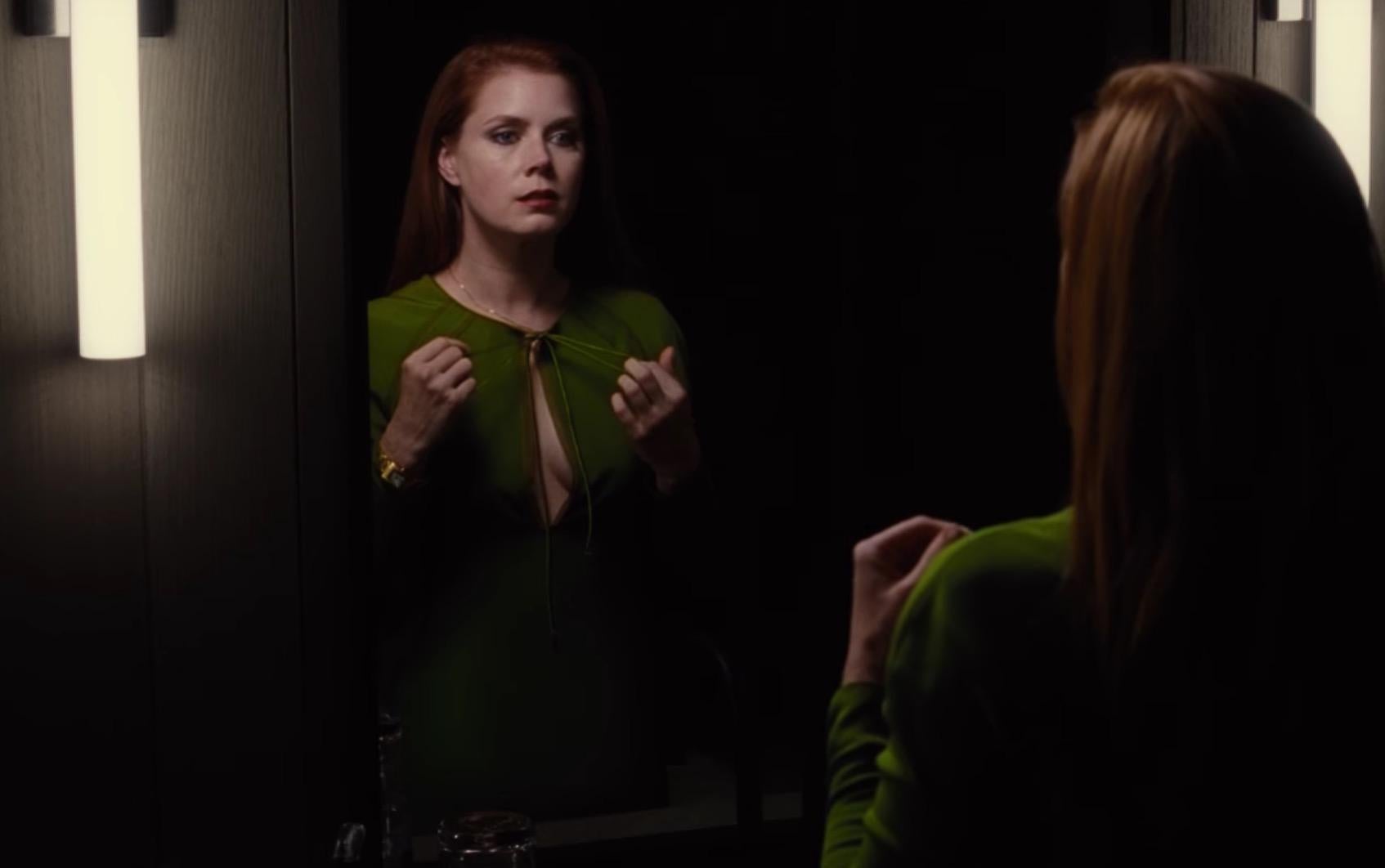Nocturnal Animals treats its central themes – regret, revenge and human experience – with a malleable blend of cold apathy and raw emotion. Though packaged as a hyper-stylised thriller, director Tom Ford has crafted a nuanced, multi-layered narrative that prioritises tragic catharsis over satisfaction or resolution. There’s a simple story at the heart of Nocturnal Animals, told in vignettes alternating between present, past and outright fiction, each directed with a subtle, though specific approach. However, for all its meta-mystery and multiple layers, it succeeds its maintaining relentless tension throughout. Reinforced with stunning performances from both its leads and its regrettably underused supporting players, Nocturnal Animals is an astonishing, intensely gripping thriller that will gratify and devastate in equal measure.
Despite owning a successful Los Angeles art-gallery, Susan Morrow’s (Amy Adams) life is marred by professional dissatisfaction and a constantly travelling husband (Armie Hammer). During one of his business trips, Susan receives a draft of a book written by her previous husband, Edward (Jake Gyllenhaal), telling the story of a family vacation that goes nightmarishly awry. While reading, Susan is struck with anxiety and regret, ruminating on her past life with Edward.
Ford structures Nocturnal Animals with an expertise unusual for a director on only his second feature. The film’s alternating realities and timelines – fact and fiction, past and present – are specified with a striking blend of movement and colour. The present day segments, enacted in the superficial territories of the L.A. elite, are framed with static, unwavering cameras and a dull, muted colour palette: an emotional vacuum that evokes the impassive lens of Michael Haneke. Conversely, the fictional world we enter as Susan reads the manuscript – also titled “Nocturnal Animals” – is replete with steady zooms, pans, tracking shots and disconcerting shaky cams. After the fiction-narrative’s opening highway segment, the colour palette is a vibrant sunburst of golden browns and desert yellows, clashing intensely with the greys of Susan’s present day reality; accordingly, the sudden cuts between reality and fiction are often borderline-hallucinatory.
In the fiction-narrative, Gyllenhaal plays Tony, a teacher, setting off on a road trip with his daughter and wife, played by Isla Fisher. This casting in itself works into Ford’s commentary. The past-day segments of Nocturnal Animals are treated with the same visual approach as the fictional segments – a comment on the unreliability of memory, particularly that which is traumatic. As an actress that has regularly been confused with Amy Adams, Fisher’s casting functions hand in hand with Ford’s didactic approach. Michael Sheen appears briefly as Susan’s brother and Laura Linney is wickedly good in a short past segment as her mother. It would be great to see more of both actors throughout, but the narrative’s emotional weight is carried by Adams in reality and Gyllenhaal in fiction – both actors excel in two very different roles. Also of note is Michael Shannon’s fantastic turn as a police officer in Edward’s book. His character is a stoic, sure, commanding individual, stripped of the peculiar insecurities that usually dominate Shannon’s roles.
Inevitably, there are those that will condemn the film’s stylistic excesses, but everything in Nocturnal Animals is visually arranged and structured as such for a reason. The layered narratives are distinct in every way from performance to formal strategy, but work together in satisfying coherence; the frequent cuts between present, past and fiction serve as punctuating moments in a constantly flowing, expertly paced narrative. Yes, Ford’s ultra-cool, hyper-stylised approach is often overwhelming, sometimes even bordering on a kind of Lynchian theatricality, but that’s part of Nocturnal Animals' charm: A consistently gripping thriller with a relentlessly bleak, often absurd blend of emotion and aesthetic.









